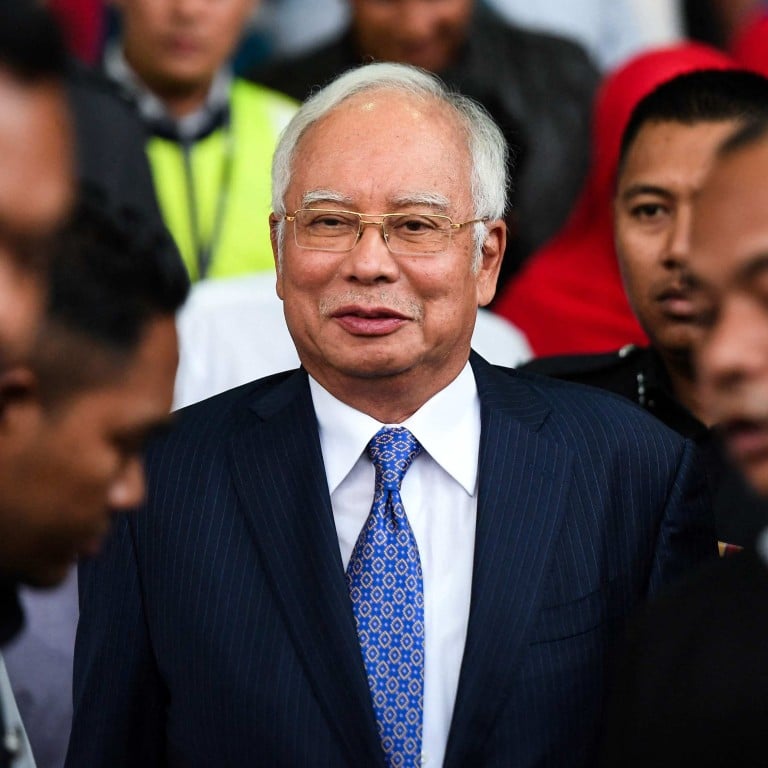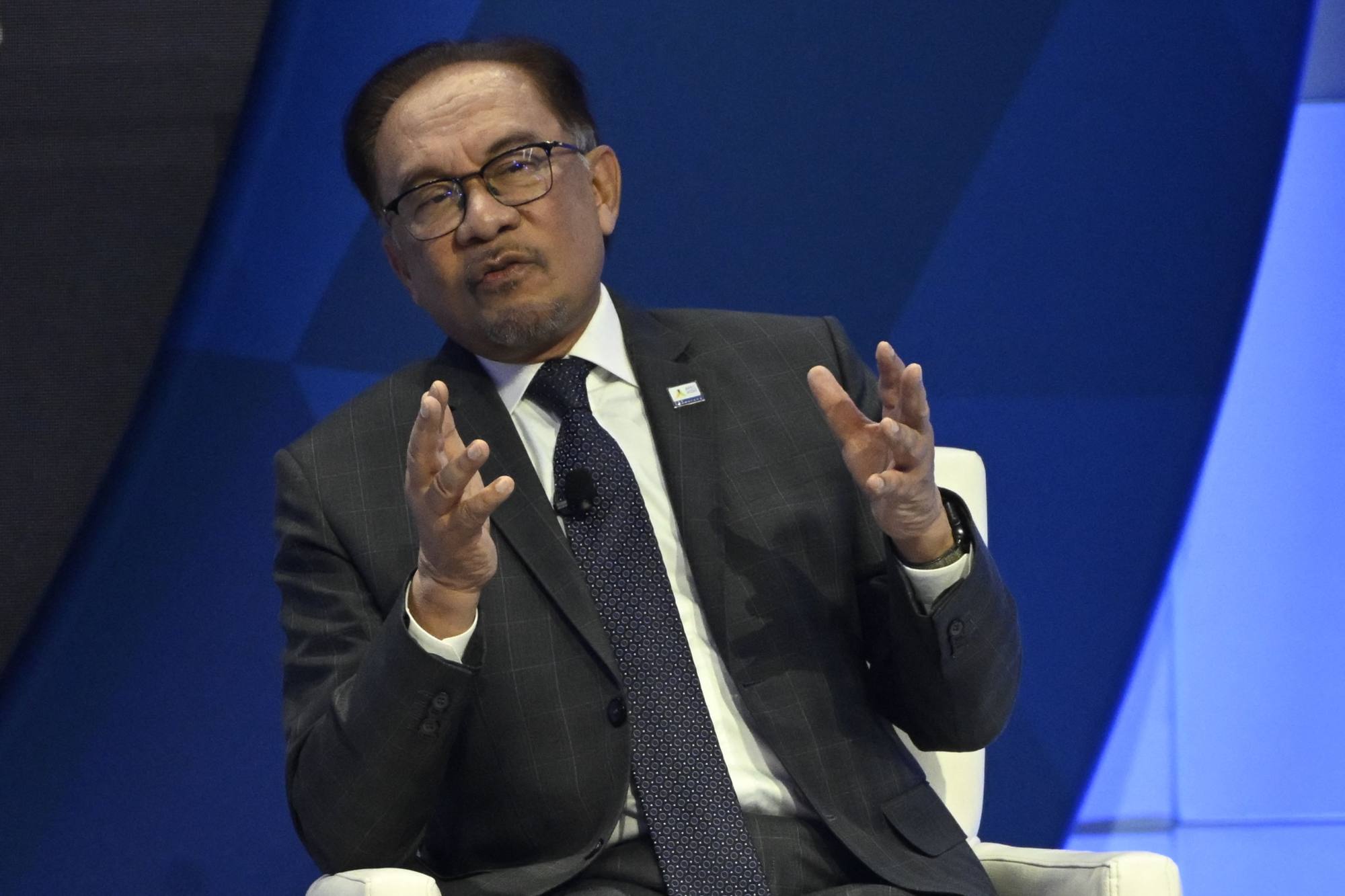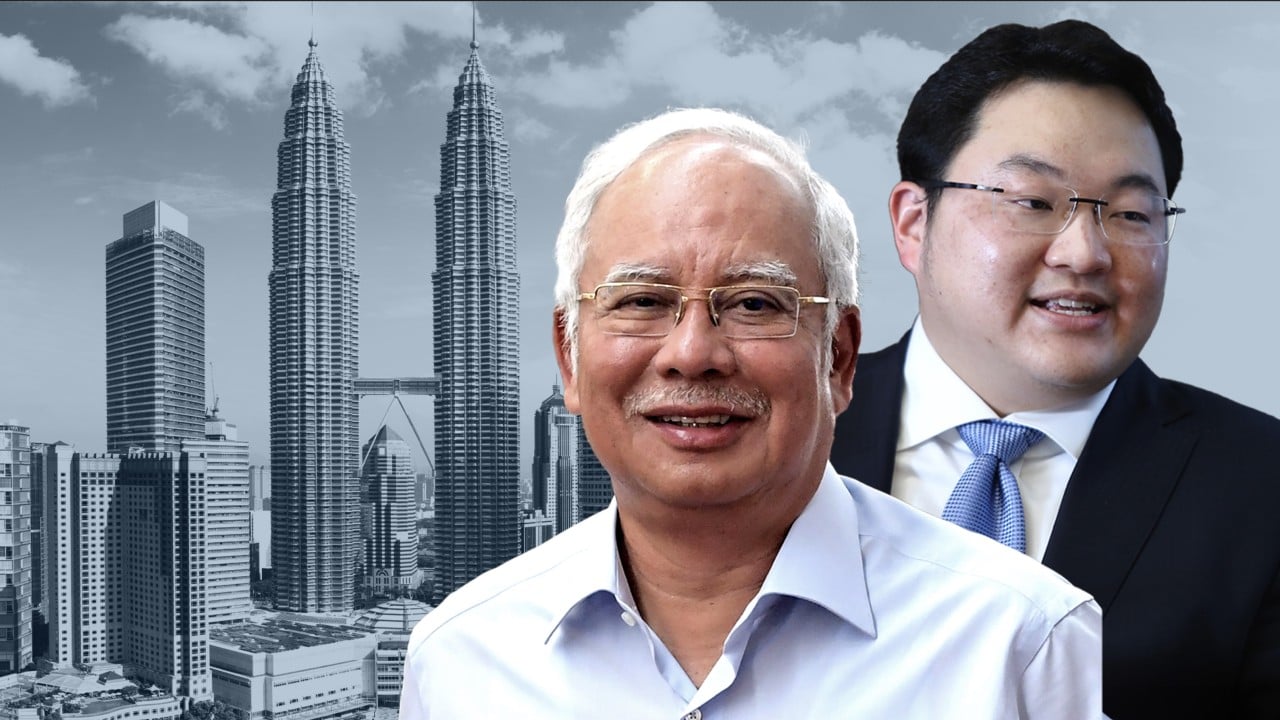
1MDB scandal: Anwar seeks to soothe Malaysians’ outrage over Najib Razak’s reduced punishment
- The decision to halve Najib Razak’s sentence and cut his fine for corruption linked to the plunder of 1MDB enraged the public and reopened old wounds
- Prime Minister Anwar Ibrahim on Monday framed the decision as a ‘matter of compassion’ on the part of Sultan Abdullah in a final act as Malaysia’s king

On Monday, Anwar tried to soothe the outrage being aimed at his administration, which came to power in late 2022 partly thanks to the support of Umno, Najib’s party.
“His majesty is what is described as a fountain of mercy,” Anwar said of the king’s decision as head of the pardons board on the last day of his reign on January 30. “The main consideration is the matter of compassion. Whether his majesty decided to issue an explanation or not, that is his prerogative.”
The pardons board also reduced Najib’s fine from 210 million ringgit (US$44.5 million) to just 50 million ringgit.
Malaysia’s pardons board halves ex-PM Najib Razak’s 12-year sentence
Najib, who denies all wrongdoing, must be released no later than August 23, 2028, the board said on Friday. But he could be granted parole as early as the end of next year under sentencing rules.
Public scorn for the leniency being shown to a man at the heart of a corruption scandal that became global news intensified after police began an investigation into social media posts by Tony Pua, a former member of parliament whose revelations were crucial in bringing the 1MDB scandal to light.
Calling Najib “King Klep” – short for kleptocrat – Pua jokingly asked to be sent to jail for a year in exchange for 50 million ringgit, mocking the one-year extra penalty Najib faces if he fails to pay his heavily discounted fine.
“I’m being investigated for sedition over my Facebook posts,” Pua said on Sunday, asking people to wish him luck.
Anwar’s purge? Malaysia’s corruption crackdown has PM’s rivals in its sights
Akmal Saleh, leader of Umno’s vocal youth wing that filed police reports against Pua, responded by saying: “May your wish to go to prison be granted.”
Many, including Anwar’s former deputy law minister Ramkarpal Singh, have called for the pardons board to outline its thinking behind the decision on Najib.
“Such developments can result in the perception that the government does not take the menace of corruption seriously,” Ramkarpal said in a statement.
The contentious decision came as Transparency International announced on Tuesday that Malaysia had improved its global corruption perception ranking for 2023, climbing to the 57th position compared to 61st the previous year.
Najib’s continued lack of remorse over his conviction has further angered Malaysians after his daughter Nooryana Najwa said her father was “very very disappointed” at not being given a full pardon.
On Saturday, Umno’s communications chief Lokman Adam said the reduced term was made possible thanks to Anwar and his deputy Ahmad Zahid Hamidi – who is also Umno president – after they brought forward an application for the king’s consideration.
“Due to efforts by the president [of Umno] and raised by the prime minister, Najib’s petition was heard earlier by [Sultan Abdullah],” Lokman said.
Now Malaysia has a new king, will politics finally take a back seat?
Anwar has said that as prime minister it is his duty to ensure that pardon petitions are heard.
Coalition allies have warned Anwar of the risks of political expediency in serious corruption cases.
“DAP leadership must reiterate its commitment to battling corruption and promoting institutional reform in line with what it has championed since the party was formed in 1965,” former deputy minister of international trade Ong Kian Ming said in a statement.
DAP, or the Democratic Action Party, is the largest party in the government’s coalition with 40 seats in Malaysia’s 222-seat parliament.


